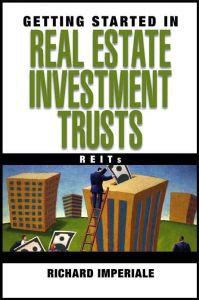
Recommendation
With the stock market seeming always ready to freeze or fall, author Richard Imperiale believes that investors who want cash return and diversification should consider Real-Estate Investment Trusts (REITs). You may remember some nasty history in decades past associated with shadowy real-estate tax shelters, but the U.S. Congress cleaned that mess up and created this rather stable investing medium instead. REITs' magnetism comes from their required payout from income, their ease of entry and exit, and their overall return, which usually matches stock market results. This makes REITs a nice way to accumulate wealth and line your 401k retirement pillow. Of course, since REITs are publicly traded, they face the stock market's uncertainties. After the "getting started" chapters, the author gets into the nitty-gritty of REIT securities analysis. As a boon for the very serious investor, Imperiale analyzes numerous real-estate sectors. He asserts that a substantial REIT infusion of 5% to 20% should make most portfolios "juicier," but he does not emphasize REITs' market negatives or today’s erratic real-estate market. So with an added dose of caveat emptor, getAbstract recommends this book to people looking for access (without heartburn) into the numerous opportunities in the multitrillion dollar real-estate market, including a quick getaway if needed.
Summary
About the Author
Richard Imperiale heads a company that manages about $450 million, much of it invested in equities, including REITs.








Comment on this summary